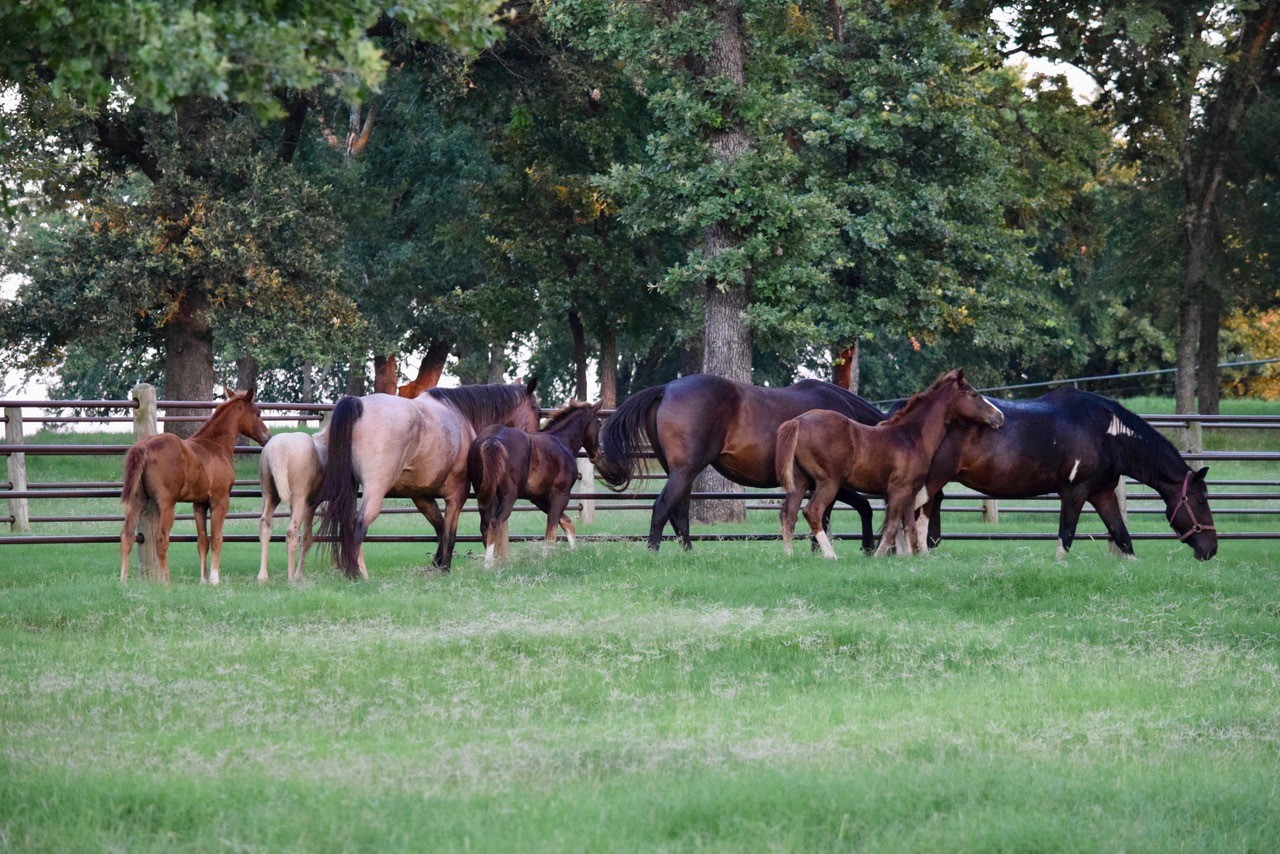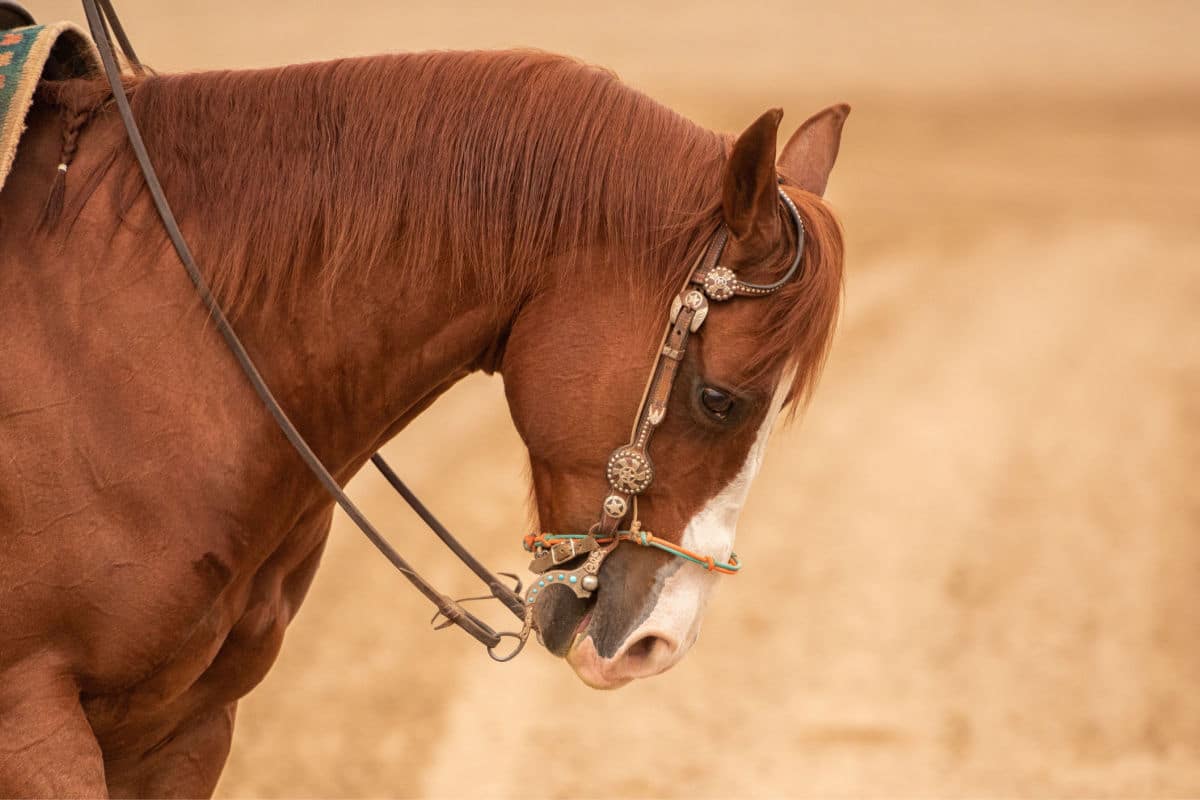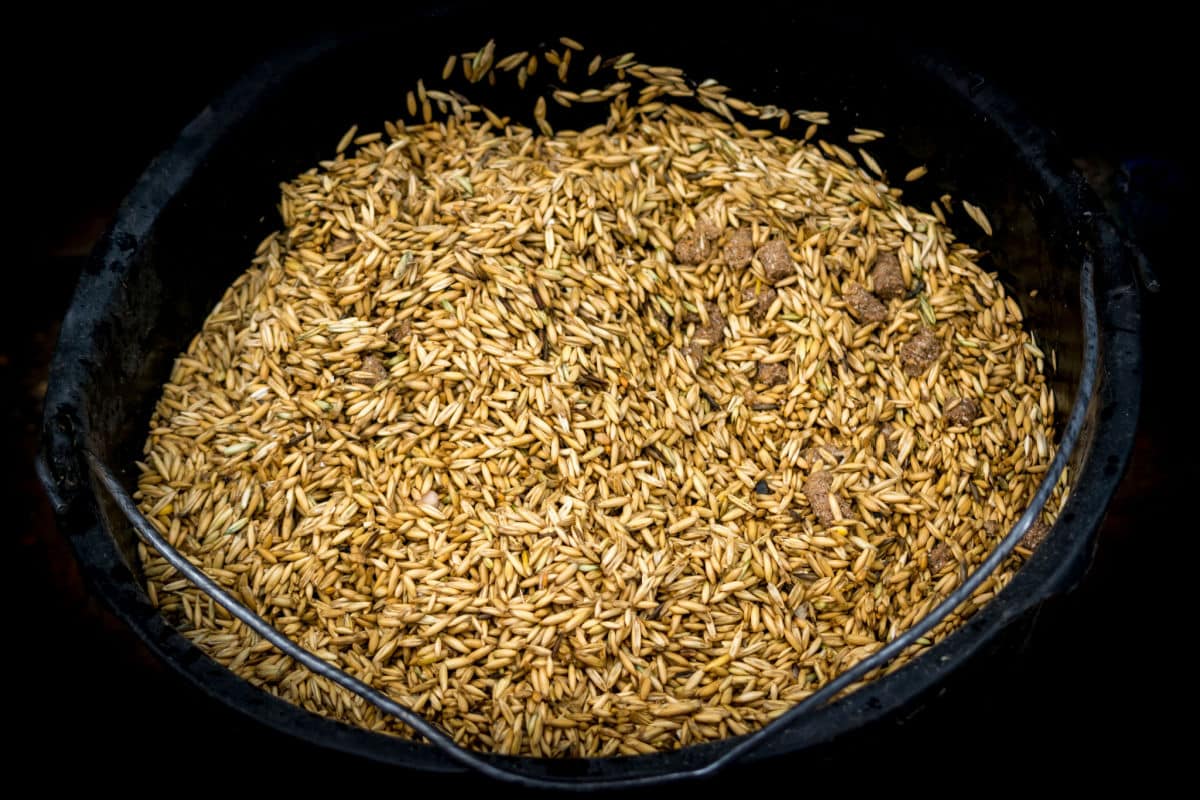In Monday Myths we debunk common misconceptions about a range of topics regarding equine digestive health and care. These are real statements made by real horse people. Have a question or topic you would like to see covered? Submit your idea here.

Statement: My horse lives out in a big pasture with plenty of grass 24/7. She won’t colic.
We talk a great deal about promoting digestive health – and overall wellness – by mimicking the horse’s natural lifestyle. One of the key components of the naturally kept lifestyle is to provide our horses with as much turnout as possible, with around-the-clock as the ultimate ideal. The unfortunate side effect is that some equestrians who ARE able to provide their horses with 24/7 turnout erroneously believe this ensures their horses will not colic. It is a myth that a horse turned out to pasture is safe from colic, and here’s why.Colic Has Always Affected a Portion of the Equine Population
Colic in horses is not a modern problem, and therefore not solely a result of modern feeding, care or lack of turnout. Friedberger and Frohner’s Veterinary Pathology, published in 1908, provides a myriad of statistics and documentation regarding equine colic incidences from as far back as the first century. According to Friedberger and Frohner, colic is one of the oldest known equine conditions and they cite literature dating back nearly two thousand years discussing its affects. The authors also discuss statistics from their own era, as reported from European veterinary colleges, military groups utilizing horses, specific nations, and others. Across, the board, high incidences of colic attacks were common and averaged a 10-14% mortality rate. Not much has changed in 2013. Clearly colic has been a problem for horses for a very long time, and will probably continue to be so.Many Potential Causes of Equine Colic
True, many studies have correlated colic with keeping horses stalled and feeding grain-based feeds. While 24/7 turnout certainly helps to alleviate the poor digestive health that comes along with those management practices, it doesn’t do anything to stop a myriad of other causes. Here’s just a small sampling of reasons a horse living out on pasture 24/7 (or any horse for that matter) could still colic.Parasites
Many equestrians believe that regular deworming means their horses are parasite-free. The truth is that even the most effective veterinarian-directed deworming program only reduces the potential for parasites. And most programs are not as effective as we think. Parasites are a known contributor to colic.Toxins
Introducing any kind of toxins into a horse’s hindgut puts her at risk for colic. Toxins may originate internally when undigested starch from grain-based feeds reaches the hindgut and harms the beneficial bacteria that aid in digestion – for example. Or it may originate externally from legumes, weeds, pathogens in the soil, or other things your horse could ingest in the pasture.Dehydration
Just because your horse is moving and grazing around the clock doesn’t mean that she’s drinking enough. Dehydration plays a huge role in impaction colic, especially during cold winter months when horses are less inclined to drink frigid water.Sand
If you live in an area with sandy soil, your pastured horse could be at risk for impaction colic caused by sand building up in the gut. Supplementing with psyllium has been shown to counteract the effects of ingesting sand.Rich Spring Grass
New grass growth in spring is a concern for any horse on any amount of turnout. It is high in a sugar molecule called fructose, especially when nights are cool and days are sunny and hot. Fructans are hard on a horse’s hindgut, and if not introduced slowly may induce colic. Additionally, new spring grass is a change in feed just like switching hay dealers or grain types and can impact the bacterial population in the hindgut as those changes do if not managed carefully. These examples are just the tip of the iceberg. There are so many potential causes of colic in horses, and while many can be avoided with diligent monitoring and management, not all can.Know Your Horse
It’s easy to look out the window at your horses grazing or dozing in the distance and assume that all is well. But it’s critical to monitor your turned-out horses up close and personal several times a day so that you learn their patterns of behavior and can catch problems early. Don’t assume that just because they are turned out their guts are safe. Horses turned out 24/7 won’t colic = myth. Colic is an unfortunate reality for horses, and there are too many causes for all to be alleviated simply with turn out.



